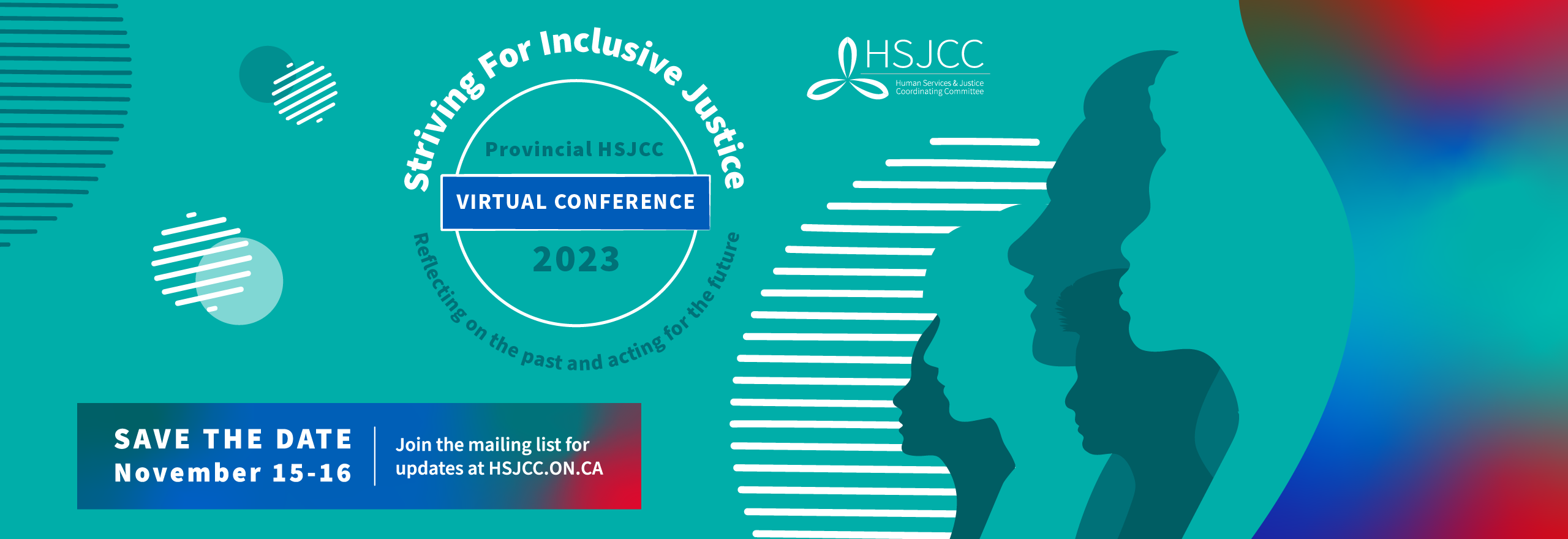- Provincial Committee
Provincial HSJCC
- Regional & Local Committees
Regional and Local HSJCCs
Champlain
Durham
Haliburton-Kawartha Lakes-Pine Ridge
Halton
Hamilton-Niagara-Brant-Haldimand-Norfolk
North East
Northwest
Peel
Simcoe-Muskoka
South East
South West
Toronto
Waterloo-Wellington
York-South Simcoe
- Our Work
- Biennial Conference
- Resources

Trauma-Sensitive Care: Principles and Practices
June 12 @ 10:00 am – June 13 @ 5:30 pm
Trauma-Sensitive Care involves understanding how past trauma (including developmental trauma such as childhood abuse) impacts a service user’s current behaviour, mental health and physical health. When trauma is misinterpreted, misunderstood, and minimized, people are left to respond repeatedly from wounded places, without awareness. When combined with developmental disability or substance abuse, the challenges for individuals living with trauma are compounded enormously. As a result, when agencies and service providers are not trauma-informed, they run the risk of misdiagnosis, inadequate treatment or service provision, damage to the helping relationship, and inadvertently re-traumatizing clients.
A trauma-informed approach recognizes that past trauma can play a major role in mental illness, addiction, homelessness, crime and even chronic diseases and physical ailments. Instead of asking “what is wrong with this person?” we ask “what happened to this person?”. With that lens, compassion, safety, and empowerment for the service user are key principles that are integrated into all aspects of service from intake procedures to individual interactions with service providers. We become more effective supporters to the people we care for, and the spin-off is that we’re highly likely to understand ourselves better as well. This approach can be applied across all settings including (but not limited to) Social Services, child welfare agencies, schools, homeless shelters & women’s shelters, group homes, enforcement agencies, addiction agencies, community & health care settings, and businesses.
This practical, interactive workshop will introduce participants to the principles and practices of Trauma-Informed Care. Kim’s presentation style will include a combination of lecture, video analysis, and small and large group discussions.
Learning Objectives
- Gain an appreciation for the deep impact that trauma has upon brain development, relational skills, coping strategies and behaviour
- Identify the red flags in behaviour that are suggestive of relational trauma, and the complexities when coupled with developmental disability
- Develop skills of attunement and “holding space” as a force for regulation, healthy brain rewiring, reflection, self-esteem and learning
- Develop practical scripts and skills related to compassionate communication
- Understand the importance of neurodiverse affirming practices as trauma-sensitive
- Integrate the concepts of trauma sensitive practice to support ourselves and others
- Discuss how to encourage and facilitate collaboration between individuals and professional organizations, towards a more effective and sustainable community of practice
$379 – $419


